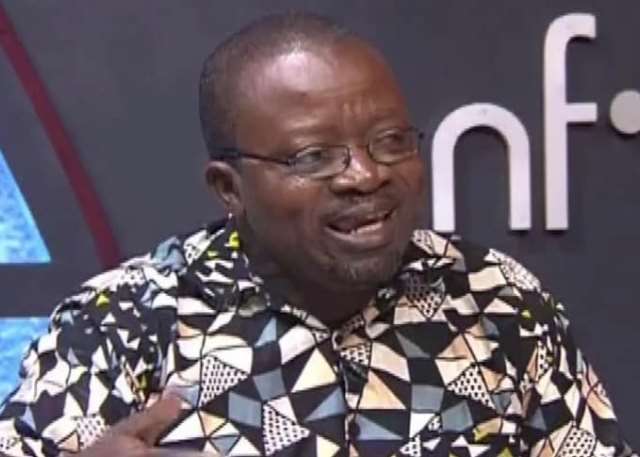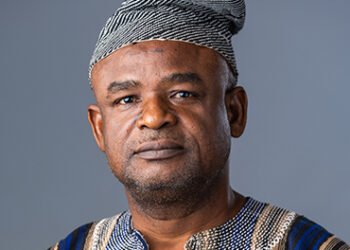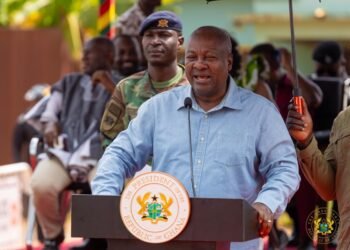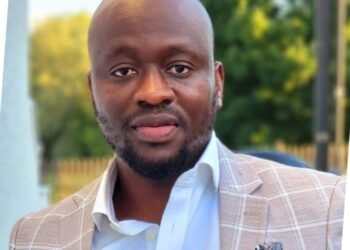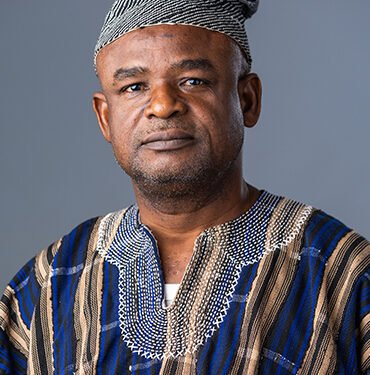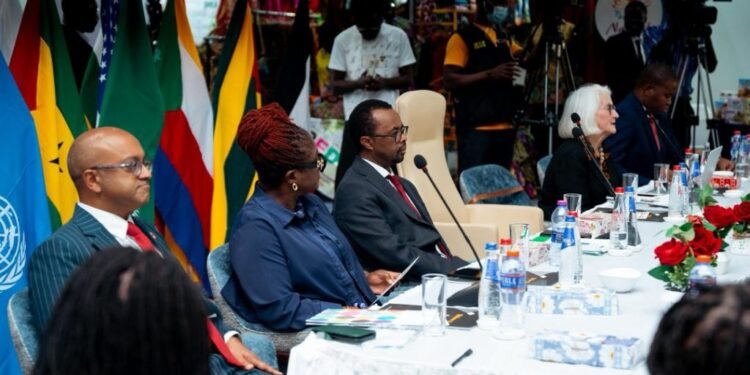In a reflective address on current political dynamics Senior Lecturer at the University of Ghana and Head of the Center for European Studies Dr. Kwame Asah Asante, has voiced out the significance of U.S. elections to the global community and the importance of non-partisan conduct within Ghana’s traditional leadership.
His thoughts underlined the interconnectedness of global politics and the need for democratic stability within local contexts.
The Global Impact of U.S. Elections
Dr. Asante emphasized the critical role the United States plays on the global stage and the importance of its elections to countries worldwide.
He noted that U.S. policy decisions influence global trade, foreign policy, human rights, and various other sectors, making it imperative for other nations to follow U.S. electoral processes closely.
“Whatever happens in the U.S. obviously affects every part of the world,” he explained, highlighting the need for nations to remain vigilant and prepared to adapt to new policies depending on the election outcomes.
Dr. Asante urged the global community to “begin to position ourselves towards what each of the leaders have set” since U.S. policies inevitably impact trade and diplomatic relations globally.
Dr. Asante also expressed hope that American voters would elect a leader who is not only best suited for the United States but also sensitive to international relationships and cooperation.
“It is my hope and prayer that Americans will come out and give us the leader that they think is the best.”
Dr. Kwame Asah Asante Senior Lecturer University of Ghana
He believes that whoever wins should implement policies that benefit the international community.
“.. So that leader will also follow through their policies and programs, that we in order part of the world will have at least some bite of the things that they gave to us so that we move on.”
Dr. Kwame Asah Asante Senior Lecturer University of Ghana
Lessons in Democratic Conduct

Dr. Asante observed that the way the U.S. election campaigns are conducted offers important lessons for Ghana and other countries striving to improve their democratic processes.
Despite occasional conflicts in U.S. elections, he acknowledged, “The good things that we are picking from the election we should be able to learn from them and then inculcate that in our elections here.”
Dr. Asante drew attention to the issue of political violence in Ghana, stressing that it should be eliminated from election processes.
He cited recent incidents of violence, including Nima and other regions, as troubling occurrences that should not be part of Ghana’s political landscape.
“… The last election where eight people were shot dead, and up to date nobody had talked about it, will not have a repeat of that.”
Dr. Kwame Asah Asante Senior Lecturer University of Ghana
Dr. Asante emphasized, advocating for stronger measures to prevent election-related violence in Ghana.
The Role of Chiefs in Ghana’s Political Landscape
Shifting the focus to recent developments in Ghana, Dr. Asante addressed the role of traditional leaders in politics, expressing concern over the endorsement of political candidates by some chiefs.
He cited the recent endorsement of Dr. Mahamudu Bawumia, a presidential candidate, by the Akumadan chief, describing it as a direct violation of a Supreme Court ruling prohibiting chiefs from engaging in partisan politics.
“This is unfortunate, because this flies in the face of the Supreme Court ruling, which says that yes, chiefs are part of the political system, but they cannot engage in partisan political activity.”
Dr. Kwame Asah Asante Senior Lecturer University of Ghana
He clarified that while chiefs may endorse specific policies, they should not endorse individual candidates, as this compromises their neutrality and traditional role.
In his view, Ghana must take further action to reinforce the Supreme Court ruling.
He suggested implementing legal amendments that would outline clear penalties for traditional leaders who violate this rule.
“We have to let it work by looking at the law again and then amend it and then prescribe sanctions. We need a sanction regime to deal with people who cross the line in this regard.”
Dr. Kwame Asah Asante Senior Lecturer University of Ghana
Dr. Asante warned that without such legal reinforcement, chiefs’ involvement in partisan politics would continue, despite the Supreme Court’s directive.
“We see them as neutrals so we want them to shy away from things like this and then we continue to as the epitome of tradition. and then they should be the people that anytime we are in difficulty, we will run to.”
Dr. Kwame Asah Asante Senior Lecturer University of Ghana
Dr. Asante’s analysis highlighted the interconnected nature of global politics and the essential lessons that Ghana and other nations can derive from observing U.S. elections.
He encouraged the adoption of best practices from mature democracies, particularly the emphasis on peaceful elections and non-partisanship among traditional leaders.
Dr. Asante’s statements reflected a call to strengthen Ghana’s democracy by enforcing legal frameworks that ensure both political integrity and respect for cultural institutions.
READ ALSO; Gospel Musicians Advised on Acknowledging Original Composers

